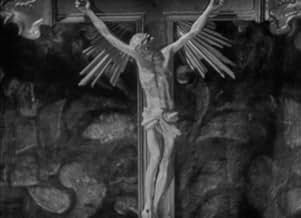IMDb-BEWERTUNG
7,5/10
1606
IHRE BEWERTUNG
Füge eine Handlung in deiner Sprache hinzuFrench soldier travels to Germany to find a family of a man he killed during World War I.French soldier travels to Germany to find a family of a man he killed during World War I.French soldier travels to Germany to find a family of a man he killed during World War I.
- Auszeichnungen
- 1 Nominierung insgesamt
Rod McLennan
- War Veteran
- (as Rodney McLennon)
George Davis
- Concierge
- (Nicht genannt)
Robert Dudley
- Townsman
- (Nicht genannt)
Lillian Elliott
- Frau Bresslauer
- (Nicht genannt)
Henry Fifer
- Townsman
- (Nicht genannt)
Julia Swayne Gordon
- Townswoman
- (Nicht genannt)
Handlung
WUSSTEST DU SCHON:
- WissenswertesThe family name of the German family whose son was killed is Holderlin, the name of the greatest Romantic idealist poet of Germany.
- VerbindungenRemade as Frantz (2016)
Ausgewählte Rezension
In the sense that this film's post-WW I pacifist yearnings are naive and unsupported by philosophic or practical consideration, this film is dated, there's no denying that. In that sense it's tied to its time in a way that many other films of the early thirties are not. But still, it's a wonderful film! A simple story: A Frenchman is overcome with guilt for killing a single German in battle in WW I. The church gives him no solace, so he decides to seek the forgiveness of the German soldier's family. The family jumps to the conclusion that he was a friend of their son, and he hasn't the courage to tell them the truth.
The performances are straightforward, and Lionel Barrymore is superb, as he nearly always was in his early years. When appropriate, Lubitsch uses all the showy techniques of his personal style. The opening scenes are a bravura series of brilliant visual bits, particularly the tracking shot down the church aisle at an armistice service, showing a belted sword extended from each pew. At other points, too, his special touch is evident, especially with the use of sound. When the German girl strolls with the Frenchman, the scandalous news travels from shop to shop to shop, and their walk is punctuated by the sound of the tingling bells on the shop doors. And the ticking of the clock, which the old man faithfully winds in his dead son's room, is adroitly used in the final scenes. One of the most telling uses of sound is when Barrymore hears the sound of marching feet. He looks toward an archway and the militaristic sound grows louder, but the sequence ends before the soldiers appear in the arch. It's a chilling moment that reminds the audience that Hitler is just off-screen, that perhaps the film's ideas are already out-of-date.
But Lubitsch also shows his greatness by the ABSENCE of obvious Lubitsch technique throughout much of the film. He's aware that his characters are the essence of the film, and for long stretches he lets his players act their story in plain, unbroken two-shots, without cinematic embellishment. It's a film by a master, and it's shameful that the failure of this film prevented Lubitsch from ever undertaking another drama.
The performances are straightforward, and Lionel Barrymore is superb, as he nearly always was in his early years. When appropriate, Lubitsch uses all the showy techniques of his personal style. The opening scenes are a bravura series of brilliant visual bits, particularly the tracking shot down the church aisle at an armistice service, showing a belted sword extended from each pew. At other points, too, his special touch is evident, especially with the use of sound. When the German girl strolls with the Frenchman, the scandalous news travels from shop to shop to shop, and their walk is punctuated by the sound of the tingling bells on the shop doors. And the ticking of the clock, which the old man faithfully winds in his dead son's room, is adroitly used in the final scenes. One of the most telling uses of sound is when Barrymore hears the sound of marching feet. He looks toward an archway and the militaristic sound grows louder, but the sequence ends before the soldiers appear in the arch. It's a chilling moment that reminds the audience that Hitler is just off-screen, that perhaps the film's ideas are already out-of-date.
But Lubitsch also shows his greatness by the ABSENCE of obvious Lubitsch technique throughout much of the film. He's aware that his characters are the essence of the film, and for long stretches he lets his players act their story in plain, unbroken two-shots, without cinematic embellishment. It's a film by a master, and it's shameful that the failure of this film prevented Lubitsch from ever undertaking another drama.
Top-Auswahl
Melde dich zum Bewerten an und greife auf die Watchlist für personalisierte Empfehlungen zu.
- How long is Broken Lullaby?Powered by Alexa
Details
- Erscheinungsdatum
- Herkunftsland
- Sprachen
- Auch bekannt als
- Der fremde Sohn
- Drehorte
- Produktionsfirma
- Weitere beteiligte Unternehmen bei IMDbPro anzeigen
Box Office
- Budget
- 889.154 $ (geschätzt)
- Laufzeit1 Stunde 16 Minuten
- Farbe
- Seitenverhältnis
- 1.20 : 1
Zu dieser Seite beitragen
Bearbeitung vorschlagen oder fehlenden Inhalt hinzufügen

Oberste Lücke
By what name was Der Mann, den sein Gewissen trieb (1932) officially released in India in English?
Antwort






























